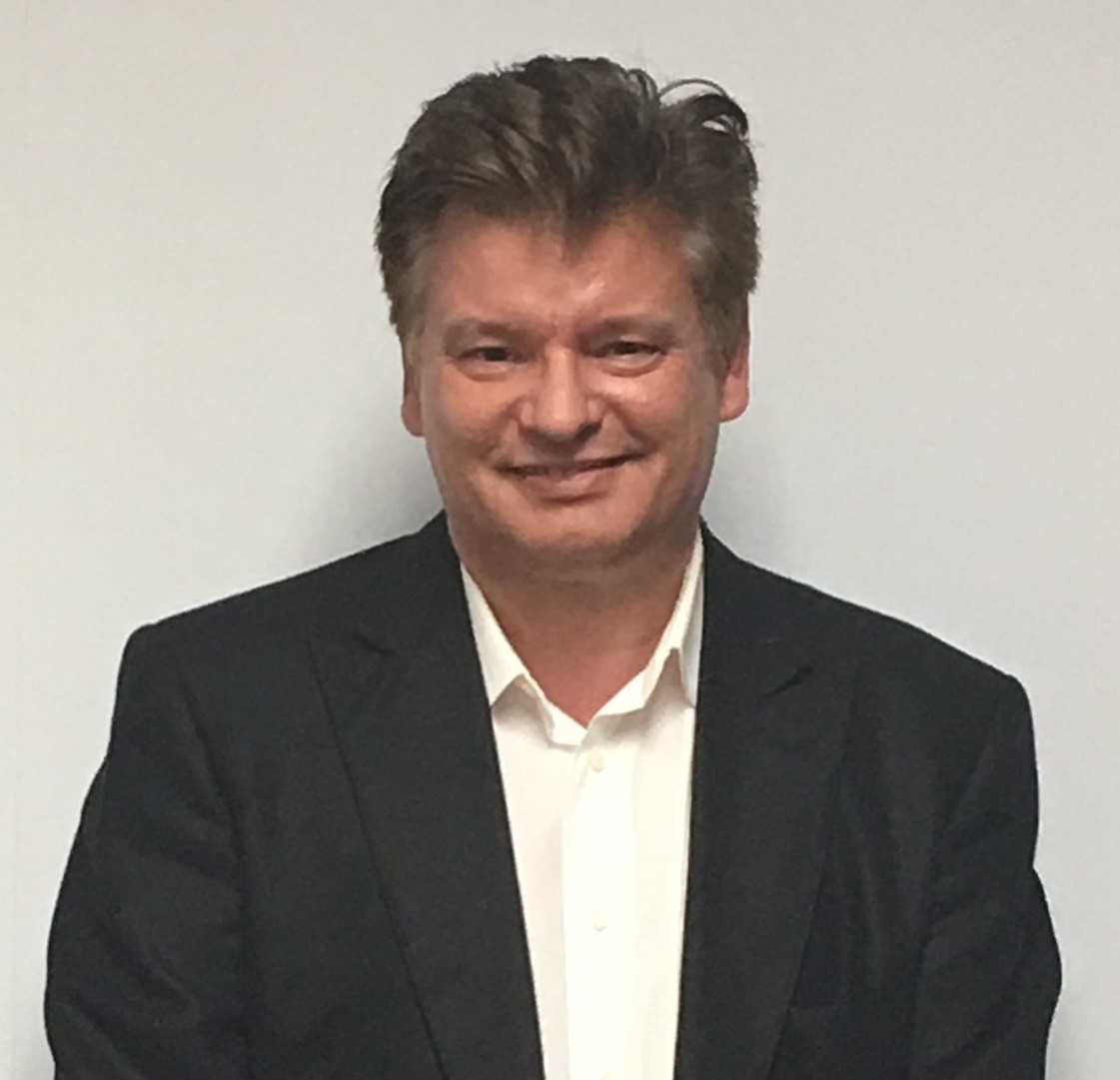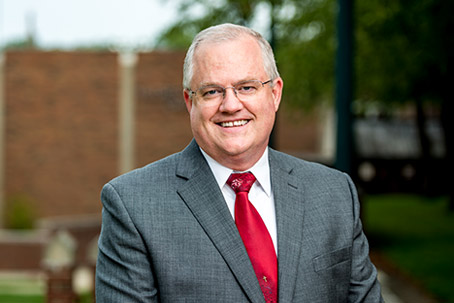Explore Jobs
Find Specific Jobs
Explore Careers
Explore Professions
Best Companies
Explore Companies
Job outlook for lighting engineers in the United States
Are lighting engineer jobs in demand?
Lighting Engineer job and salary trends over time
Lighting Engineer jobs over time
Lighting Engineer job growth rate over time
| Year | # Of Jobs | % Of Population |
|---|---|---|
| 2021 | 703 | 0.00% |
| 2020 | 700 | 0.00% |
| 2019 | 702 | 0.00% |
| 2018 | 705 | 0.00% |
| 2017 | 693 | 0.00% |
Average lighting engineer salary over time
Lighting Engineer salary by year
| Year | Avg. Salary | Hourly Rate | % Change |
|---|---|---|---|
| 2025 | $85,362 | $41.04 | +2.3% |
| 2024 | $83,415 | $40.10 | +2.0% |
| 2023 | $81,815 | $39.33 | +1.7% |
| 2022 | $80,477 | $38.69 | +0.9% |
| 2021 | $79,757 | $38.34 | +1.3% |
Lighting Engineer jobs by state

Most common states for lighting engineers
| Rank | State | Population | # of Jobs | Employment/ 1000ppl |
|---|---|---|---|---|
| 1 | District of Columbia | 693,972 | 234 | 34% |
| 2 | Virginia | 8,470,020 | 1,010 | 12% |
| 3 | Massachusetts | 6,859,819 | 856 | 12% |
| 4 | Maryland | 6,052,177 | 659 | 11% |
| 5 | Colorado | 5,607,154 | 569 | 10% |
| 6 | Delaware | 961,939 | 100 | 10% |
| 7 | Washington | 7,405,743 | 658 | 9% |
| 8 | Oregon | 4,142,776 | 356 | 9% |
| 9 | California | 39,536,653 | 3,188 | 8% |
| 10 | Arizona | 7,016,270 | 583 | 8% |
| 11 | Utah | 3,101,833 | 257 | 8% |
| 12 | New Hampshire | 1,342,795 | 104 | 8% |
| 13 | Vermont | 623,657 | 48 | 8% |
| 14 | Alabama | 4,874,747 | 329 | 7% |
| 15 | Iowa | 3,145,711 | 206 | 7% |
| 16 | New Mexico | 2,088,070 | 137 | 7% |
| 17 | Wyoming | 579,315 | 39 | 7% |
| 18 | Minnesota | 5,576,606 | 340 | 6% |
| 19 | Maine | 1,335,907 | 78 | 6% |
| 20 | Alaska | 739,795 | 42 | 6% |
Most common cities for lighting engineers
| Rank | City | # of Jobs | Employment/ 1000ppl | Avg. Salary |
|---|---|---|---|---|
| 1 | Silver Spring | 2 | 3% | $96,580 |
| 2 | El Cajon | 2 | 2% | $96,122 |
| 3 | Anaheim | 2 | 1% | $99,661 |
| 4 | New Orleans | 2 | 1% | $87,664 |
| 5 | Champaign | 1 | 1% | $86,456 |
| 6 | San Diego | 3 | 0% | $96,273 |
| 7 | Atlanta | 2 | 0% | $77,268 |
| 8 | Los Angeles | 2 | 0% | $100,843 |
| 9 | Detroit | 1 | 0% | $81,000 |
| 10 | Minneapolis | 1 | 0% | $83,352 |
Lighting Engineer job outlook: Expert opinions
Our panel of lighting engineer experts
Gonzaga University
Stevens Institute of Technology

Fairfield University
Xavier University

Old Dominion University

University of Nebraska–Lincoln

Liberty University

Rose-Hulman Institute of Technology
Northern Michigan University
Elon University
Merrimack College
Marietta College

University of Maryland

University of Baltimore

Crafton Tull

University of Arkansas, Fayetteville

Wright State University
What Lighting Engineer skills would you recommend for someone trying to advance their career?
Steven Schennum Ph.D. P.E.: The most important skill is the ability to learn new things, and especially to unlearn things you “know” after evidence demonstrates that these things are not true. Learn how to analyze information. Your intuition, simulations, and results should all be in alignment. If they are not, then dig deeper. Learn the terminology and jargon specific to your company and your projects. Spend time reading. Don’t be afraid to ask questions. Don’t be intimidated by new software.
What Lighting Engineer skills would you recommend for someone trying to advance their career?
Min Song: Communication skills and innovative thinking skills. As emerging technologies continue to be complex and multidisciplinary, it’s important to be able to communicate with professionals in diverse disciplines. Taking robotics, for example, the electrical engineer must be able to work with mechanical and biomechanical engineers, computer engineers, software engineers, artificial intelligence experts, cognitive scientists, system engineers, etc. A person will be able to generate innovative ideas only if the person has a complete and comprehensive understanding of the entire system and can work well with other individuals with a range of expertise.

What general advice would you give to a Lighting Engineer?
Dr. Harvey Hoffman: Graduates need to be flexible and open to taking on new projects, exploring new industries, perhaps non-traditional areas where they see growth, while building and maintaining their networking relationships. Go where the demand is for the role you seek. I hate to use a cliche, but remember that your engineering career is a journey that may take you in many directions. Be open to change.
A professional in any field must continue to learn. Your engineering degree gave you the necessary tools. You must engage in lifelong learning to increase your knowledge and improve your skills and competencies to set yourself apart.
Dr. Heidrun Schmitzer
Professor and ChairXavier University
Department Of Physics
What skills stand out on Lighting Engineer resumes?
Dr. Heidrun Schmitzer: Programming languages, numerical design and simulation tools, knowledge of various measurement equipment.
What soft skills should all Lighting Engineers possess?
Dr. Heidrun Schmitzer: Communication, teamwork.
What hard/technical skills are most important for Lighting Engineers?
Dr. Heidrun Schmitzer: Depends on the engineering career, but in general, an ability to know how to use design software, measurement/testing, and analysis equipment, in addition to prototyping and fabrication tools
What skills will help Lighting Engineers earn the most?
Dr. Heidrun Schmitzer: Problem-solving, troubleshooting, independent learner.

What type of skills will young Lighting Engineers need?
Michel Audette Ph.D.: One skill that is timeless is the ability to communicate effectively, such as taking a complex design process and distilling it into intuitive slides or reports that lend themselves for senior managers to process in order to come to a decision. An engineer who has that ability will always have some tools in his/her toolbox that makes that individual attractive to a company and to the local technical ecosystem, thus a ripe target for headhunters who willing to champion them to companies looking for top talent. Moreover, speaking and writing well also comes with a vital component of diplomacy, especially in the context of increasingly distributed company workforce: the ability not just to get on with colleagues from different parts of the world, increasingly heterogeneous in terms of gender and possibly sexual preference, but embrace them for who they are. This is often maps to opportunities to travel, as some collaborations lead to meetings face to face, post-covid.
This embrace of heterogeneity is even more relevant in that technical problems being solved are increasingly multi-disciplinary, so that an engineer may need to interact with biologists, physicians, clothing or furniture designers, mathematicians, lawyers, and so on: in my own case, I have to wear a multitude of different hats, while recognizing someone who is a perfect fit for one of those hats when I meet that individual, and making the most of that opportunity to build a truly competent team. Engineers must be able to hold a meaningful, respectful conversation with any of these counterparts, not just discuss code or circuit design. I would advocate that they spend time reading, to maintain their vocabulary and stay abreast of the world around them.
Another one that I advocate is the ability to tap into a revolution that has occurred in parallel with the advent of Internet and cellular technologies, these past 30+ years: the explosion of open-source software tools. I am a committed proponent of open source, as a former contributor to them while previously employed at Kitware (a pioneer in this area, behind VTK, ITK, CMake, and myriad others). I see job ads in Indeed.com that specifically ask for the ability to work with these tools, since they save work and make it possible to produce a prototype in much less time than developing it completely in-house. This ability does not just presuppose the ability to program at a competent level, but other abilities: the ability to track bugs that not be in the calling program, but in the open-source software library itself, the willingness to get answers in the community of developers, the eye for details that extends to graphical processor units that result in accelerations an order of magnitude or better, and so on. These go way beyond writing a self-contained algorithm. Hardware designers may also have similar tools, based on broad standards, Arduino, and the prevalence of 3D printers that make it possible to physically replicate digital models.
Finally, a vital skill is the willingness and ability to keep learning, while embracing revolutions that take place at breathtaking pace. The latest one is the reliance on deep neural networks (DNNs) to synthesize algorithms that can learn and adapt to their data, with much faster performances than feasible with the previous algorithms that DNNs have replaced. The point to make here is not to embrace neural networks in a proximal sense, but that we cannot anticipate what will come next, downstream of DNNs. Graduates of 2021 have to be willing to keep their curiosity and work ethic enough to be responsive to the next wave of technologies, and embrace them for the opportunities that they represent.
Will there be an enduring impact of the coronavirus pandemic on Lighting Engineers?
Michel Audette Ph.D.: My take on this is what I've seen with my wife's work in industry, which suggests that the industrial landscape is going to be increasingly equipped for, and open to, remote work. I think that the implication for graduates is that they may need to be flexible about working within a geographically distributed team. If company deciders feel that someone is worth employing because of a unique skill set, then they would typically be more willing to hire that person even if unable to make it to work regularly, if that is feasible given the nature of the work; some work, such as hardware testing or industrial production, may not lend itself to remote contributions.
Nonetheless, for those areas that accommodate geographically distributed activity, such as software development, graduates can expect to interact with team members all over the US, possibly all over the world, if someone is deemed unique enough to hire despite living abroad. This places a high premium on the ability and willingness to work in a heterogeneous team, where not only will members look different, but also have myriad accents in their English, which will also impose a certain adaptability and tolerance to team members.
A related impact could also be that global hiring will make it easier for multi-national companies to hire a portion of their talent in countries where wages are lower and motivate US-based engineers to seek out graduate degrees in order to increase their competitiveness and employability at US salaries.

Dr. Sohrab Asgarpoor
Associate Dean for Undergraduate Programs, Professor of Electrical and Computer EngineeringUniversity of Nebraska–Lincoln
College of Engineering
How do you envision technology impacting Lighting Engineers in the next 5 years?
Dr. Sohrab Asgarpoor: Adopting new technology should be an exciting (and expected) reality for those with an engineering degree. The virtual space will continue to grow as folks seek jobs and work online more. But what holds paramount, no matter what particular technological changes arise, is the ability to adapt-and to demonstrate that critical aptitude in their application documents and through their interviews, always highlighting those moments they've done so and articulating their propensity for learning.

What experience really stands out on Lighting Engineer resumes?
Robert Rich: -Certification such as green belt, black-belt, machine learning, Lean Manufacturing, and APICS supply chain/inventory
-Specialized undergraduate research projects that go deep into various leading-edge topics like integrating AI with manufacturing and logistics
-Consulting experience/real projects within areas of undergraduate research

Dr. Galen Duree
Head of the Department of Physics and Optical Engineering and ProfessorRose-Hulman Institute of Technology
Department of Physics and Optical Engineering
What experience really stands out on Lighting Engineer resumes?
Dr. Galen Duree: It depends on what you are applying for. If you are working on product development, then internships or co-ops provide a definite advantage. If you are working on developing new ways of doing things, research experiences in academia or companies are advantageous. Either case, this shows a certain maturity in your career path - you have participated in an activity related to the career you are currently pursuing.
What Lighting Engineer skills would you recommend for someone trying to advance their career?
Dr. Galen Duree: It again depends on what the graduate sees as their next step - graduate school or a job with a company or lab. If the next step is graduate school, the graduate should investigate what they are interested in pursuing and then where the best school is to get the experience that the graduate thinks he or she wants.
General reading about technologies or reading available articles about subjects the graduate is interested in will help generate questions they can ask potential graduate schools. This time would also be a chance to improve areas where the graduate may feel weak while an undergraduate. Many online resources can help them brush up on week background topics. Do not worry about transfer credits because that is usually not helpful in graduate school, but improve knowledge and experience in areas where the graduate feels weak. If the graduate has identified a graduate school and program to study in, the graduate school might have some recommendations about what to review. All of this will help improve success in graduate school.
If the next step is a job with a company or lab, taking courses to improve communication will help. Many technically competent or even technically brilliant people struggle with effective communication. Techniques about writing reports, making oral presentations, or communicating technical information will help improve success. The gap year also provides time to investigate technologies that the graduate wants to be involved in and the companies or labs in those areas.
Once the graduate has identified areas of interest and companies or labs that the graduate might want to work for, they can be contacted to either answer questions or point the graduate in a direction for further investigation.
In either case, a gap year can provide a chance to refine the graduate's choice for the next steps and help them prepare other skills overlooked during the undergraduate years.
What technology do you think will become more important and prevalent for Lighting Engineers in the next 3-5 years?
Dr. Galen Duree: People with knowledge, even introductory experience, in quantum effects, quantum computing, optics in general (communication, measurements, imaging, illumination, detection), material science and engineering, biotechnology, and nanotechnology, will be in high demand.
Will there be an enduring impact of the coronavirus pandemic on Lighting Engineers?
Michael Rudisill: It depends on what you really mean by enduring, but for all practical purposes, once the pandemic has passed, the economy will return, and anyone in the engineering field who wants a job will have many opportunities. Obviously, the short-term effect can be brutal for new graduates as jobs are not as plentiful as "usual"-but in the long term, those that persevere will end up in great careers. In some ways, it will be harder on the senior engineers who haven't stayed employed, as they are missing out on years when their income should be the highest. New graduates are missing relatively low earning years, so the long-term effects should not be as bad looking at lifetime earnings.
How do you envision technology impacting Lighting Engineers in the next 5 years?
Michael Rudisill: Technology will continue to advance-which will increase the need for trained engineers. Even areas such as sales that not many people would think would be looking for engineers when dealing with technologically advanced products need people who understand how the product works, perform, etc.-in other words-trained engineers.
What general advice would you give to a Lighting Engineer?
Michael Rudisill: Patience will be a key - there will be many jobs available - we have been contacted by several employers looking for grads. Still, it certainly is not like we have seen historically. As the economy comes out of the COVID recession, engineering jobs will come back very quickly. By the spring graduation, I think we will be pretty close to back to a somewhat familiar employment picture.
How would you rate the starting salaries for Lighting Engineers, as well as the prospects for salary advancement?
Michael Rudisill: From what we've seen, salaries haven't been reduced, even though demand is down. I would expect wages and salary progression to remain strong as the need for engineering will only continue to grow.
What type of skills will young Lighting Engineers need?
John Ring: While our universities consistently educate engineering students with hard skills and strong engineering fundamentals, tomorrow's engineers need to be strong communicators, collaborators, and critical thinkers. Our professional environments are filled with data and information, and the constraint is typically how much time individuals can dedicate to solving a problem. At Elon University, we educate tomorrow's engineers to have the hard skills necessary to analyze the information and situations, apply critical thinking techniques to determine ways to solve the issue, and then concisely and efficiently communicate with colleagues as solutions are being set in motion.
How do you envision technology impacting Lighting Engineers in the next 5 years?
John Ring: An engineering student learns "how to learn" during their time in college. Technology will evolve, and tomorrow's engineers must learn at the same pace so that new technology can be applied to solve a problem.
Rickey Caldwell Ph.D.
Assistant Professor of Mechanical EngineeringMerrimack College
Departmet of Mechanical Engineering
Will there be an enduring impact of the coronavirus pandemic on Lighting Engineers?
Rickey Caldwell Ph.D.: In terms of job opportunities, no. It may take longer to secure that first job, and it may be an employer's job market for the next several years. This means starting salaries may not be as high as a year ago, and yearly raises may be near zero up to 3% (depending on career fields and markets). Additionally, some benefits, such as tuition reimbursement, may not be available at some companies.
However, I strongly suspect that things will get better (as a wild guess) in 3 - 5 years as the economy rebounds. For the immediate future, the full economic effects of the pandemic have not been fully realized. As companies restructure to deal with their impact on their bottom lines and workers are laid-off, more experienced employees are entering the job marking and seeking jobs. This is very similar to the financial system crash around 2008, so that could be referenced for a similar environment, especially its effect on the Midwest. Job seekers must be persistent.
For enduring changes, the pandemic has presented a great opportunity to change the nature of where we do work. This experiment has been tried before at places like Yahoo, for example. Pre-pandemic, some companies allowed workers to work from home several times per month under flexible scheduling. I believe the coronavirus pandemic will make these types of work options a larger part of the business workplace culture. Additionally, many companies are actively working to enhance their diversity, equity, and inclusion in the workplace. With this renewed attention, there may be more opportunities for workers that are women, BIPOC, LBGQT+, and others to rewrite and form new workplace norms to have new working environments. I strongly encourage people to take their seats at this table and create the world you wish to work in.
Are there any particularly good places in the United States for Lighting Engineers to find work opportunities?
Rickey Caldwell Ph.D.: The engineering centers of the US seem to have strong job markets. Boston, West Coast, Silicon Prairie, DC area are just a few. There are employment opportunities in every industry and every state. It just may take 6 - 18 months to land that first job. Students may have to cast a bigger and wider search net. For example, if you only want to work in city A, it may take longer to find a job. A better strategy is to search regionally. For example, New England, Mid Atlantic, or the Southwest. Additionally, there are sectors that are always looking for new talent, such as energy production, food companies such as Unilever, and the civilian government work at federally funded research and development laboratories (FFRDC) and University Affiliated Research Centers (UARC) such as The MITRE Corporation and the Johns Hopkins University Applied Physics Lab.
Will there be an enduring impact of the coronavirus pandemic on Lighting Engineers?
Ben Ebenhack: I believe that the impact of the pandemic on the US economy is still unfolding and that we won't be able to see any kind of robust turnaround until vaccines are widely available and seen, in practice, to be effective. Until that time, I suspect that we'll continue to see a lot of volatility as investors speculate about recovery, reopening, etc., but the trends will probably vacillate.
Once the pandemic is clearly seen to be reasonably well-controlled, I think that there will be a good deal of pent-up demand for energy and its services. I expect to see a modest recovery in energy prices, but that may not translate to jobs for a few years. Ultimately, the world's need for energy will drive prices up, and there will probably be another boom. Everyone should remember that half of humanity (~3.5 billion people) lack access to modern energy, on which development depends. With global economic recovery, I would expect that to apply considerable upward pressure on energy (and related resource) demands for the next several decades. Alternative energy will continue to grow, but I don't think it can grow as fast as some optimists expect.
How do you envision technology impacting Lighting Engineers in the next 5 years?
Ben Ebenhack: Technology radically transformed American oil and gas production a little over ten years ago, by opening up the shale plays. That will continue to evolve and remain important in the medium term, I think. We may see some of the technological developments opening new opportunities in geothermal power production.

Will there be an enduring impact of the coronavirus pandemic on Lighting Engineers?
Craig Carignan: Yes, it will have an enduring impact on aerospace grads, especially those going into aeronautical engineering. The airline industry has been hit especially hard by the pandemic, and commercial aircraft manufacture has come to a screeching halt. That means not just the airplane manufacturers being affected but all of the hundreds of aircraft parts suppliers too. The other factor is that people are learning how to attend conferences and meetings virtually, through applications like Zoom and Teams, which also saves a lot of money on travel. So even when things do start returning to normal, I think that the demand for air travel will not return to the same levels as before.
Some long term impact may also be felt by the space industry. Even though there are quarantine precautions in place (before and after a flight), human space flight might be seen as riskier due to possible infection from viruses that may not show symptoms. So we might try to do more from the ground using robotics. Also, the density of workers in a lot of places in the aerospace industry is very high, and I would expect telecommuting to become more common.

Are there any particularly good places in the United States for Lighting Engineers to find work opportunities?
Dr. Giovanni Vincenti: Cities that are typically associated with technology will probably remain hubs of innovation, especially if they have local administrations that are favorable towards entrepreneurship. However, the recent need for companies to leverage the ability to work remotely has opened up the possibilities of workers who may not otherwise be willing to relocate. This trend is probably here to stay for a while, so the ability of graduates to work with virtual collaborators will bring tech jobs to parts of the country that are not typically known for innovation. Even though there probably will not be clusters that will identify new equivalents of Silicon Valley out of nowhere, the fact that the reach of potential employees has extended beyond their geographical immediacy will create major opportunities for any location.
How do you envision technology impacting Lighting Engineers in the next 5 years?
Dr. Giovanni Vincenti: Technology will take an ever more prominent role in any field over the next few years. However, it is important for companies to realize that someone who is somewhat familiar with IT probably will not have the same expertise as a trained technologist. Whether we are creating mobile applications, finding new ways to deliver physical products, or ways to facilitate the workflow when people are working remotely, technology will remain the unifying foundation across most fields and gain significant importance in the list of essential assets for operations continuity.

What general advice would you give to a Lighting Engineer?
Libby Toping: It has definitely been a unique time to start my first job. COVID-19 has caused many of my peers to struggle to find a job, so I think it has caused me to recognize how thankful I am to have a job that I enjoy working and that allows me to improve my community, even in the midst of a pandemic. There are certainly struggles with virtual meetings and mask-wearing, but learning to be flexible and adaptable are skills that I think will make me a better engineer in the long run!

Robert Saunders P.E.
Assistant Department HeadUniversity of Arkansas, Fayetteville
Electrical Engineering Department
What general advice would you give to a Lighting Engineer?
Robert Saunders P.E.: The job market for an electrical engineering student coming out of college is challenging right now. Many companies are still hiring electrical engineering students but, the students can't be as finicky about what jobs they are accepting. More than half of the students are starting their new jobs working remotely, which is a large shift from normal but the companies seem to be using this time to bring the new hires up to speed on policy, procedures, and industry regulations.
What general advice would you give to a Lighting Engineer?
Fred Garber Ph.D.: I think the primary question, in the minds of those who are yet to graduate or are still searching, is in regard to the strength of the technical job market, especially the local job market. But you are in a position to definitively answer that question.
In you article, I would ask that you address the following:
Number of employers looking to fill and number of job offerings in the region (by engineering and computer science major) compared to last year and to the previous five years.
Any noticeable differences in job descriptions Zippia is receiving relative to work environment, benefits, starting salaries, etc.
Many of our soon-to-graduate students would be very interested in these quantitative and qualitative comparisons. Additionally, vast numbers of potential students would benefit from such information to guide their career choices.